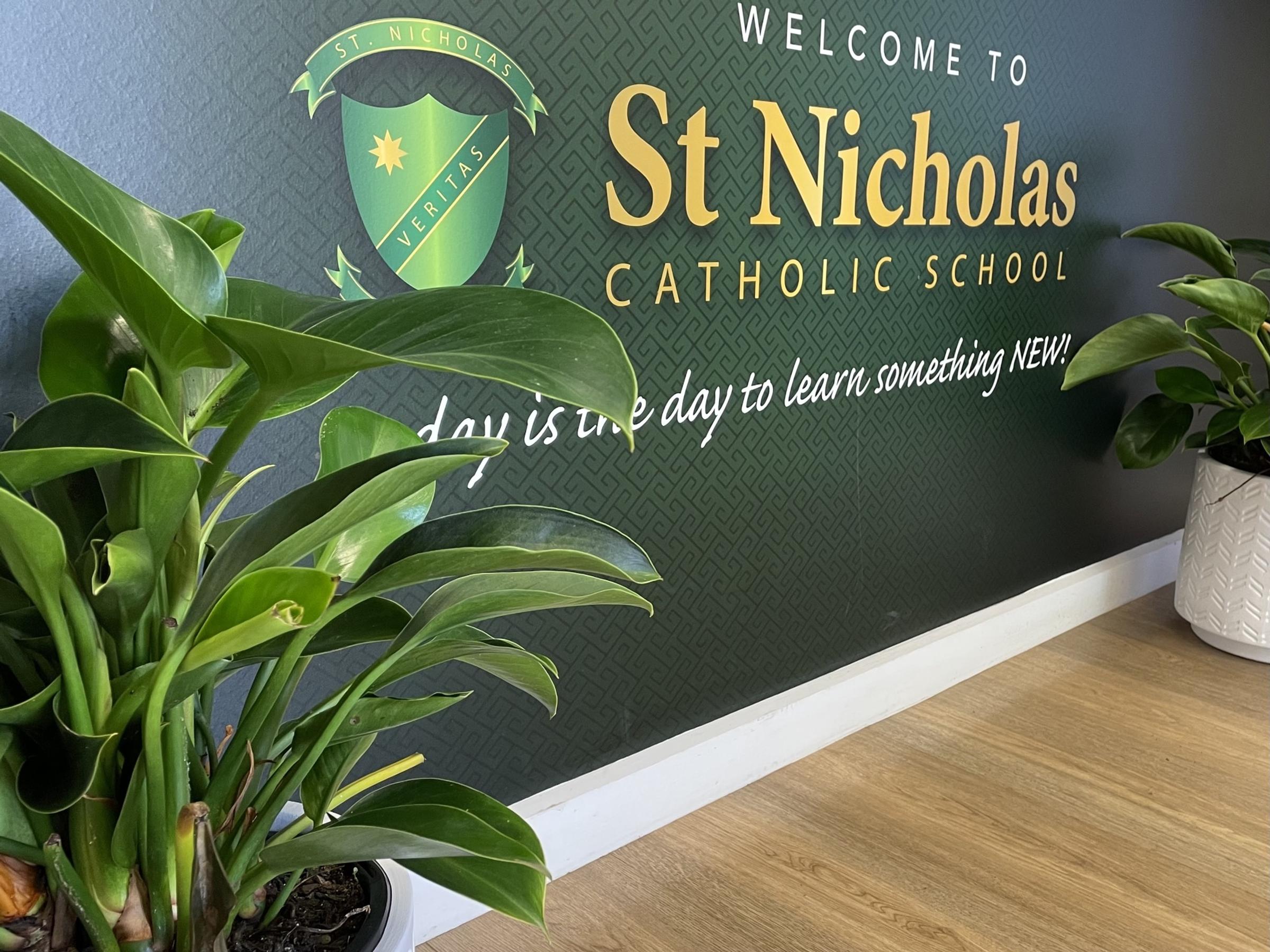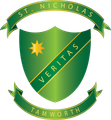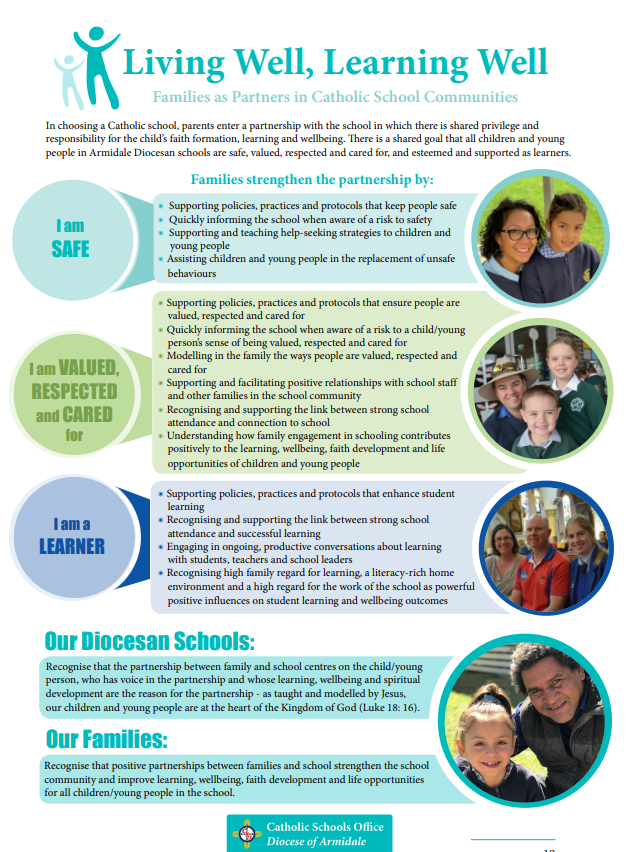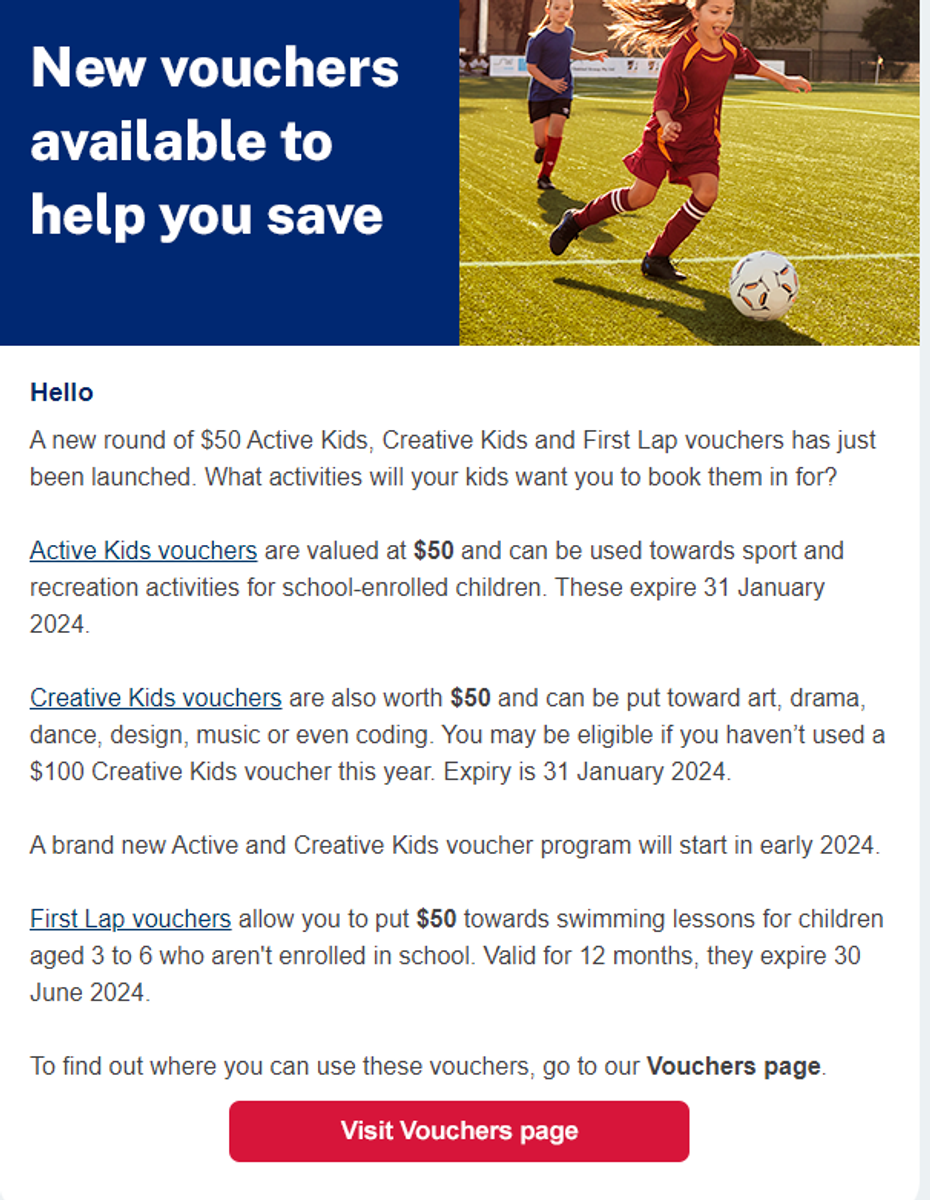GENERAL NEWS

SCHOOL FEES
We are over half way through the school year. A gentle reminder that school fees must be paid in full by Monday 4th December 2023. Thank you for your support.
ICAS TEST DATES
Please take note of the following dates if you have booked your child to sit an ICAS test/s
SPELLING: Monday 21st August, 11:20am
SCIENCE: Monday 21st August, 1:20pm
MATHEMATICS: Monday 28th August, 11:20am
FEAST DAY MUFTI DAYS
This term we will be celebrating the following feast days with a mufti day for the children in that house.
Friday 8th September (Frederic Ozanam Feast Day is Saturday 9th September)
Fredric Ozanam Feast Day - Mufti Day (Ozanam students only)
SURVEY MY SCHOOL
An annual satisfaction survey of parents, students and staff will be conducted on behalf of all Catholic schools in the Diocese this term. The surveys are designed to gather feedback from parents, staff and students about our school and will be used to inform school improvement. Responses are confidential, and individuals can not be identified.
The surveys will be launched via email on Monday, 21 August 2023 using the email addresses supplied to the school. If you do not receive an email with a link to the survey, you can access and complete the survey via the following link. https://www.research.net/r/StNicholasTamworthPARENT2023 The survey will close on Wednesday, 30 August, 2023.
MORNING SCHOOL DROP OFF
A reminder that if you are using car drop off in the morning, that parents are not to get out of their car. This is for children that are able to exit their car without assistance. We appreciate your cooperation.
Please also be aware the there is no supervision until 8:15am. Students arriving before this time need to be sitting down until the teachers dismiss them. If you need to drop your child to school before the gate opens at approximately 8:10am, please consider the use of Esteem Kids Before School Care.
Anxious kids? Teach them to take off their anxiety goggles
by Dr Jodi Richardson
Do you find it hard to focus on the present?
There’s always so much to do and plan for as parents. It’s no wonder our minds wander so much. But to think that we spend nearly half of our lives thinking about things other than what we are doing means there’s an awful lot we’re missing out on.
When we’re fully engaged with what’s happening, there’s so much to experience. Bringing our thoughts back to the present moment can be like landing them on a calm, quiet, relaxed island in the midst of stormy seas.
When our minds wander to troubling thoughts, we end up experiencing pain and suffering at times when we’re often warm and dry, fed and watered, safe and secure. Like when we’re in bed. Snug and relaxed in our comfy beds, our doona keeping us warm (or a sheet to keep us cool), with a lovely soft place to lay our heads. Could we be more content in that moment? If only our minds would stay with us!
It’s the same with our kids. It’s often at the end of the day when they’re no longer engaged in activities that they begin to think and worry.
Their minds are far away from the reality of being safe in their rooms with loving family close by but they are sick with worry about future events.
Sometimes thoughts are so ‘sticky’ it’s hard to let go
It’s hard being a wandering minds back to the present when we’re so swept up in our worries. It takes practice to notice a wandering mind, gently ‘unhook’ from the thought and return our attention to the present moment. That’s the practice of mindfulness. Notice, unhook, return, repeat.
Put your head where your hands are
A lovely woman at one of my retreats told me her grandma’s favourite saying was “put your head where your hands are” meaning think about what it is you’re doing while you’re doing it. That’s smart!
Noticing our thoughts are wandering and bringing our attention back to what we’re actually doing is a skill, which gets easier with practice. It’s a powerful skill to teach kids as it to gives them perspective and importantly, the space they need for positive change.
Viewing the world through anxiety goggles
When our kids feel anxious they look at what’s happening around them through ‘anxiety goggles’. It’s like when you look through a pair of glasses with red lenses and everything looks red. Take them off and all is clear again. What if we could help our kids to take off their anxiety goggles and learn to look at their thoughts rather than from them? It would bring them such relief.
Creating a lovely space between our kids and what they’re thinking
We can help our kids do this by developing their metacognition (thought-noticing) skills. That way, when their minds wander to their worries and troubles they can notice they’re actually ‘lost in thought’ and not really experiencing the events they are thinking about. It would help them to ‘unhook’ from their daydreaming and importantly, bring their minds back to the present moment.
Thought-noticing
This is a wonderful skillset which helps our kids to manage their mental health. When kids tune into their thinking, they immediately distance themselves from it. Rather than being lost in the thoughts that are making them feel anxious, they can mentally step back and see the thought for what it is. Just another thought that comes and goes like all the ones before and all the ones to come.
Teaching thought-noticing to kids
There are many ways to teach thought noticing to kids. Look at these ideas like a ‘Choose your own adventure’. Start where you like and go in any direction that feels right for you and your family. If the idea you try isn’t quite the right fit, choose another!
Do you hear what I hear?
Lay down comfortably side by side and spend 2 minutes listening for any sounds you can hear, near or far. When you’re finished, compare what you heard and open a discussion about how our minds often wander away with our thoughts. Kids will know this as ‘daydreaming’. Share how your mind wandered and invite your child to do the same.
Tell me more
Day-to-day conversations are great for thought noticing. It’s about asking the right questions. Here are some examples to get the thought noticing conversation started: “Can you tell me more about why you think that? Why do you think you got so upset when we had to go straight home? Why do you think you’re putting off doing your homework? How will you know when your painting is complete?”
Name your mind
If we get our kids to give their minds a name, we open up opportunities to ask them different questions. For instance, if your child name’s his/her mind Sam. You can ask your child what Sam is thinking. This encourages your child to step back and take a helicopter view of him or herself.
Post-meltdown reflection
In the aftermath of a meltdown or outburst, when calm has returned and your child or teen has moved on, take some time to ask why he/she got so upset over what happened? Ask questions like “what did your mind say to make you feel upset?” for younger children or “can you tell me what you were thinking that made you feel so angry, frustrated, disappointed etc.?” for older kids.
Developing metacognition or ‘thinking about thinking’ skills fosters self-regulation among children. As contributing to children’s mental health and happiness, metacognition helps kids be more successful, more resilient and be able to problem-solve because they are less likely to get caught up in their worries.
And remember, your GP is a great place to start if you have any issues with your kids that you’d like reassurance or advice on. Make time for a chat.
SCHOOL TRAVEL - BUS PASSES - CONCESSIONS
There is a new website where parents can access bus pass applications.
https://transportnsw.info/tickets-opal/ticket-eligibility-concessions/school-student-travel
PUPIL FREE DAYS
The following are the Pupil Free Days for the remainder of 2023.
Please mark in your diary....
Monday 18th December
Tuesday 19th December
VERITAS
Our Veritas Awards stem from our school motto - ‘Veritas’ - meaning truth. The Veritas Award is awarded to students who have been consistently displaying citizenship, leadership and/or Christian Living. Students receiving a Veritas Award are those students who have displayed our ‘Rules for Living’ in their everyday interactions. This term our focus is on ‘Valuing, respecting and caring for others’.
Congratulations to the following children who received Veritas Awards recently;Mahlia Pendergast, Tommy Cunningham, Alexis Rowland, Alyssa Malla, Spencer Willis, Daniel Hatch, Remy Roworth, Lilly Gibson, Maisie Jones, Sebastian Slater, Maximus Hodges, Anirudh Sharma, Lucas Bevan, Liam Gallagher, Nate Deacon, Alfie Sharp, Lacey Tuckey, Isaac Bennett , Alex Chaffey, Xavier Parris and Oliver Riley.
COVID INFORMATION
At the end of 2022, National Cabinet announced that people who test positive to COVID-19 do not need to isolate. In line with this announcement, schools will continue to follow guidance issued by NSW Health to support the safety and wellbeing of our school communities.
Staff and students with COVID-19 symptoms
If a student or staff member is unwell and has any symptoms they should always test for COVID-19 and not attend school until they are symptom free.
Positive COVID-19 cases
If a student or staff member receives a positive result with a RAT or PCR test they should:
1.Record the positive result through the Services NSW website or app
2.Notify the school of the positive results as soon as possible


